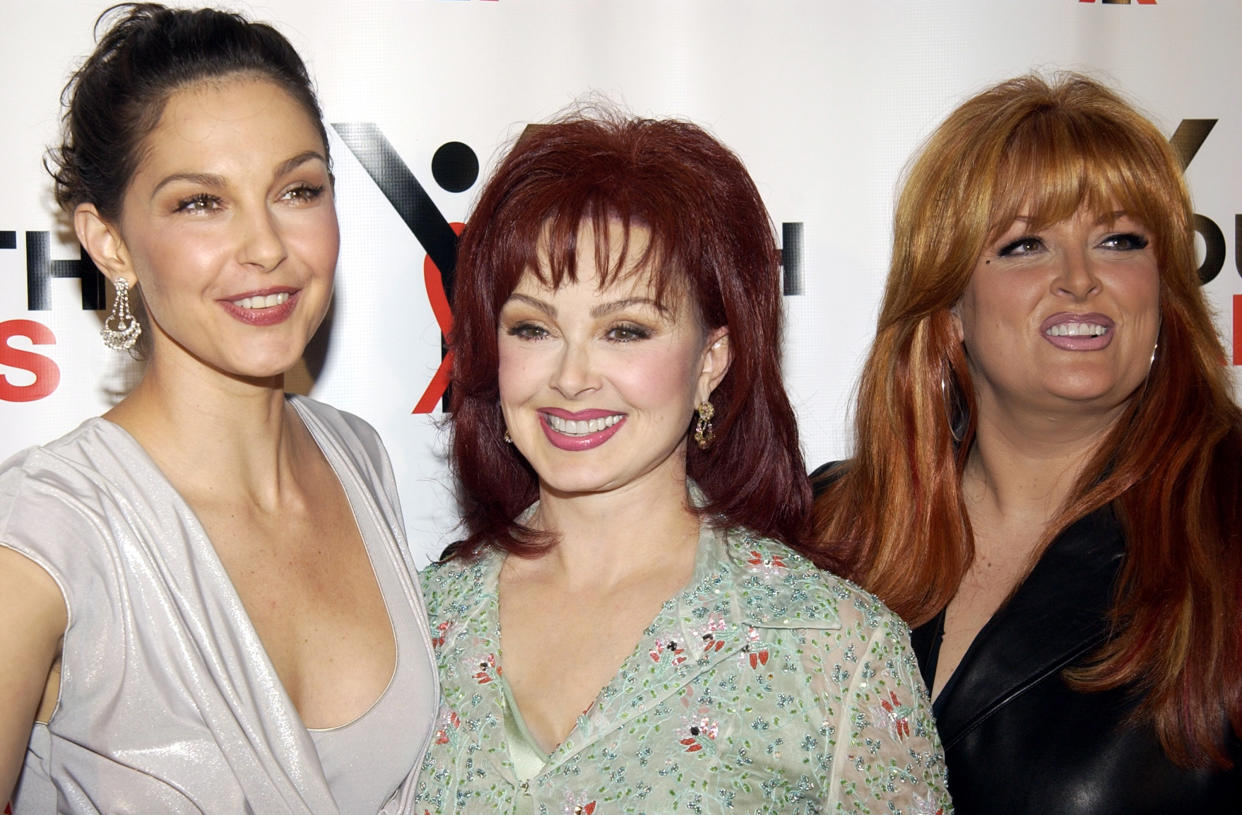Ashley Judd Calls Out 'Cruel' Misinformation Around Mom's Naomi's Death
If you or someone you know is in crisis, call 988 to reach the Suicide and Crisis Lifeline. You can also call the network, previously known as the National Suicide Prevention Lifeline, at 800-273-8255, text HOME to 741741 or visit SpeakingOfSuicide.com/resources for additional resources.
Ashley Judd is advocating for her family’s right to privacy following the death of her mother, Naomi Judd, in April.
The actor penned an essay published in “The New York Times” on Wednesday that included details about the “harrowing day” that the country music legend died at age 76. In the article, Judd explained why information surrounding Judd’s death, like police reports and family interviews, should not be made available to the public.

“April 30, 2022, was the most shattering day of my life,” she began. “My beloved mother, Naomi Judd, who had come to believe that her mental illness would only get worse, never better, took her own life that day. The trauma of discovering and then holding her laboring body haunts my nights.”
She continued, “As my family and I continue to mourn our loss, the rampant and cruel misinformation that has spread about her death, and about our relationships with her, stalks my days. The horror of it will only worsen if the details surrounding her death are disclosed by the Tennessee law that generally allows police reports, including family interviews, from closed investigations to be made public.”
Judd went on to say that she could not help her mother, who died by suicide, fight “a long battle against an unrelenting foe” while she was alive. But the activist said she can have an impact on her mother’s legacy.
“And now that I know from bitter experience the pain inflicted on families that have had a loved one die by suicide, I intend to make the subsequent invasion of privacy — the deceased person’s privacy and the family’s privacy — a personal as well as a legal cause,” she wrote.
"Family members who have lost a loved one are often revictimized by laws that can expose their most private moments to the public," she said.
She recalled having to answer questions from law enforcement the day of her mother’s death. Judd said she responded to inquiries that she “would never have answered on any other day.”
“I felt cornered and powerless as law enforcement officers began questioning me while the last of my mother’s life was fading,” the actor shared. “Instead, without it being indicated I had any choices about when, where and how to participate, I began a series of interviews that felt mandatory and imposed on me that drew me away from the precious end of my mother’s life.”
Judd then clarified that she understands the police were following typical procedures on “that harrowing day.” However, she referred to the methods as “terrible” and “outdated.”
She added, “It is now well known that law enforcement personnel should be trained in how to respond to and investigate cases involving trauma, but the men who were present left us feeling stripped of any sensitive boundary, interrogated and, in my case, as if I was a possible suspect in my mother’s suicide.”
Earlier this month, the Judd family was granted a court order to keep the singer’s "graphic" death records sealed from public record.
According to Judd, these records include the police interviews conducted with family members.
While she acknowledges that the Judd family has been known to be transparent with their fans, she said, “We ask because privacy in death is a death with more dignity. And for those left behind, privacy avoids heaping further harm upon a family that is already permanently and painfully altered.”
The family is currently waiting to see if the records will continue to be withheld from the public. Judd referenced Vanessa Bryant, who lost her husband Kobe Bryant in a helicopter crash, and others who have spoken up about the fear of the public gaining access to private details about a death.
“I hope that leaders in Washington and in state capitals will provide some basic protections for those involved in the police response to mental health emergencies. Those emergencies are tragedies, not grist for public spectacle,” Judd wrote.
After remembering the sweet moments she shared with her mother throughout her life, the actor concluded that Naomi Judd “should be remembered for how she lived, which was with goofy humor, glory onstage and unfailing kindness off it — not for the private details of how she suffered when she died.”
The aforementioned filing to protect the family’s privacy was submitted by the late musician’s husband, Larry Strickland, as well as her daughters Ashley and Wynonna Judd in Williamson County, Tennessee.
Although the order was granted, it is temporary. An evidentiary hearing has been scheduled for Sept. 12.
Last week, the Judd family spoke out after Naomi Judd’s cause of death was confirmed. An autopsy report obtained by NBC News said that the singer killed herself using a gun.
In a statement to The Associated Press, the family said, “We have always shared openly both the joys of being family as well its sorrows, too. One part of our story is that our matriarch was dogged by an unfair foe. She was treated for PTSD and bipolar disorder, to which millions of Americans can relate.”
A day after her death, Naomi Judd — who performed with daughter Wynonna as one-half of the country music duo The Judds — was inducted into the Country Music Hall of Fame.
The sisters attended the ceremony and tearfully accepted the honor on behalf of their mother.
“My momma loved you so much, and she appreciated your love for her and I’m sorry that she couldn’t hang on until today,” Ashley Judd said in her speech.
This article was originally published on TODAY.com
